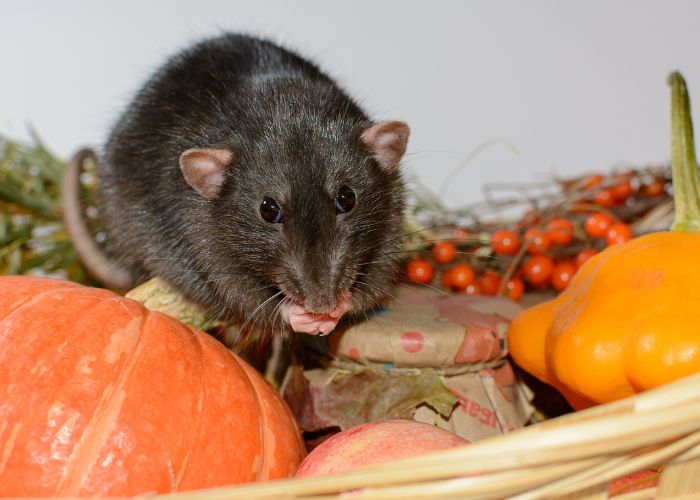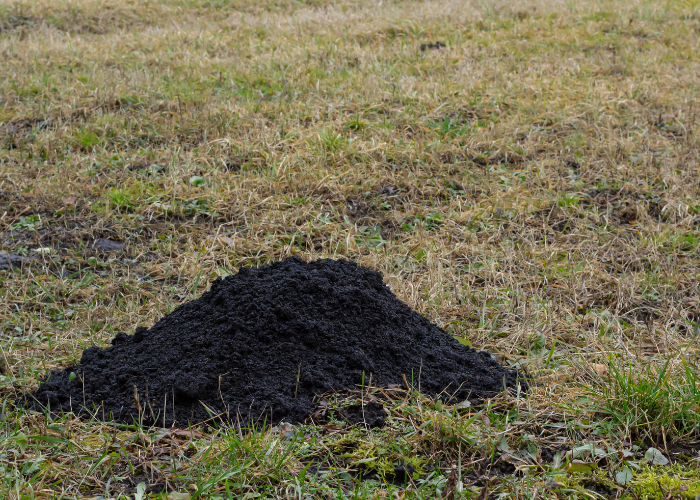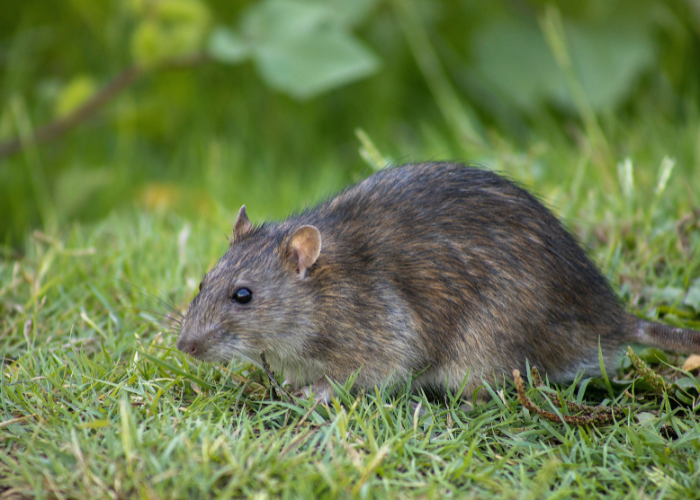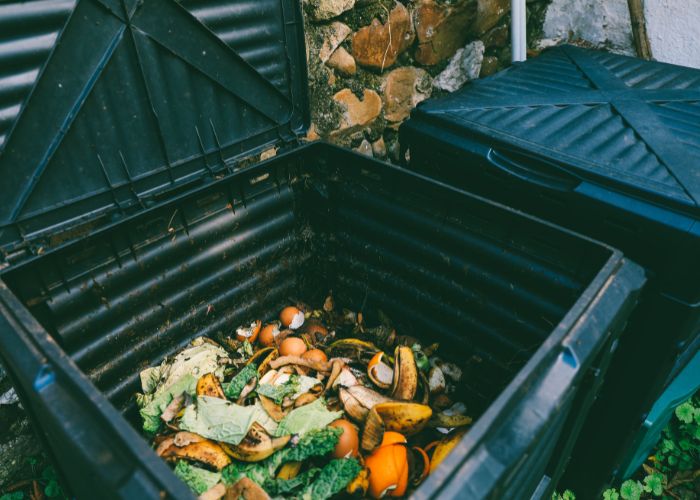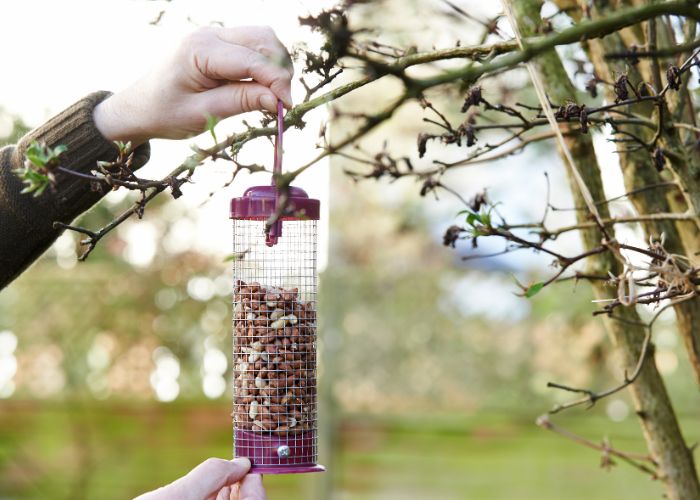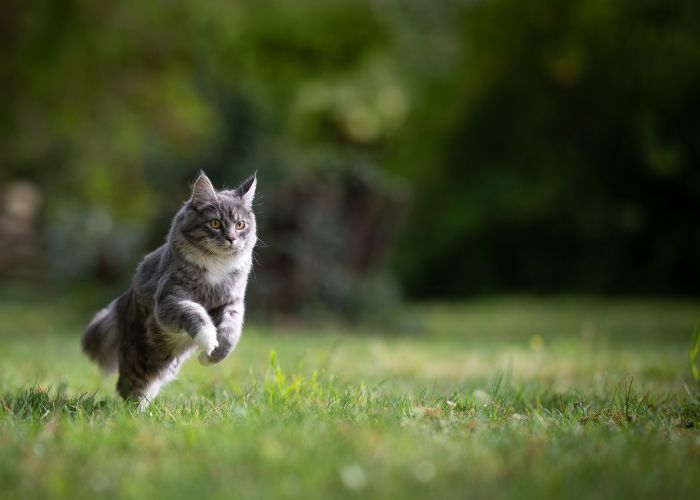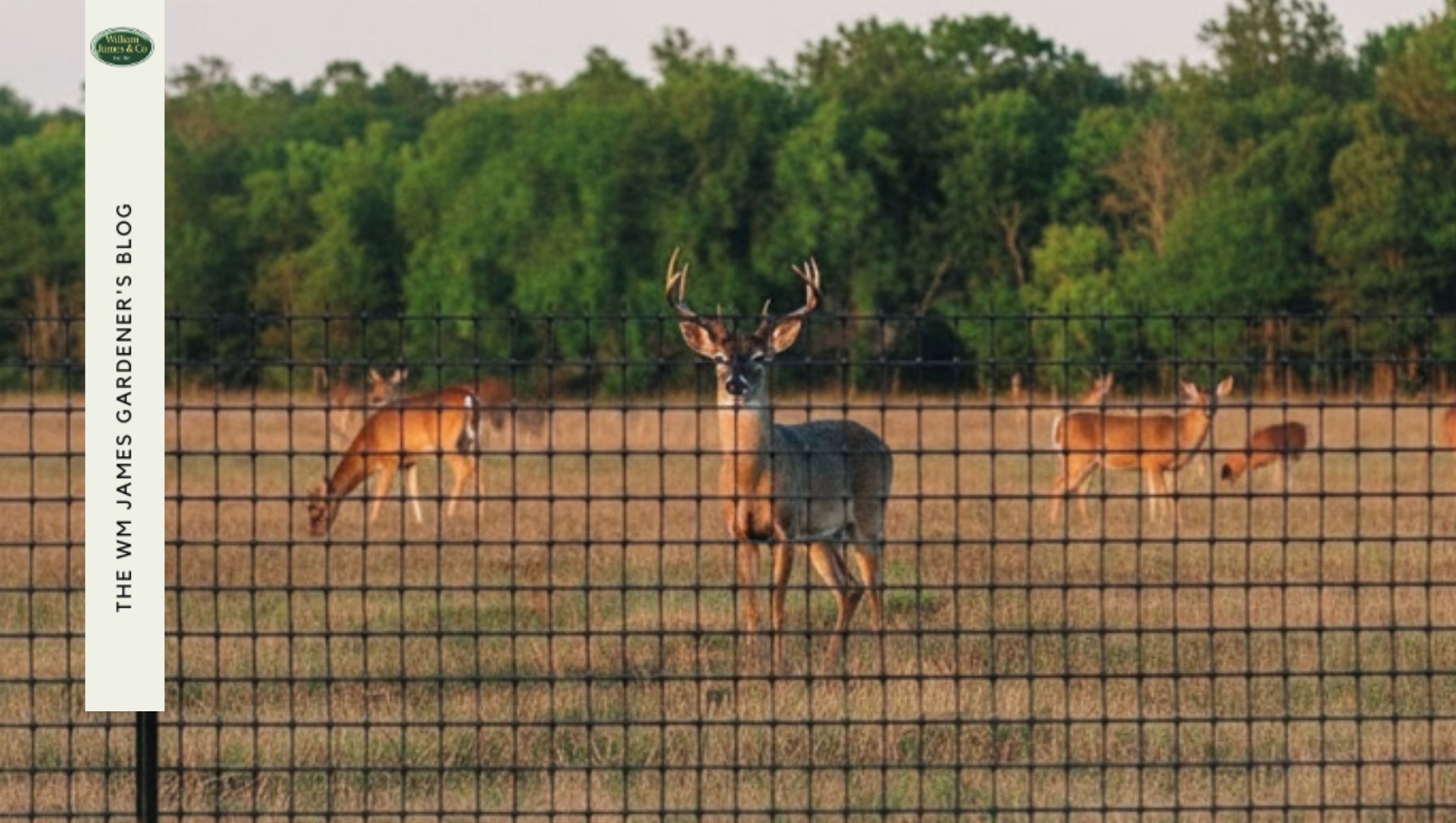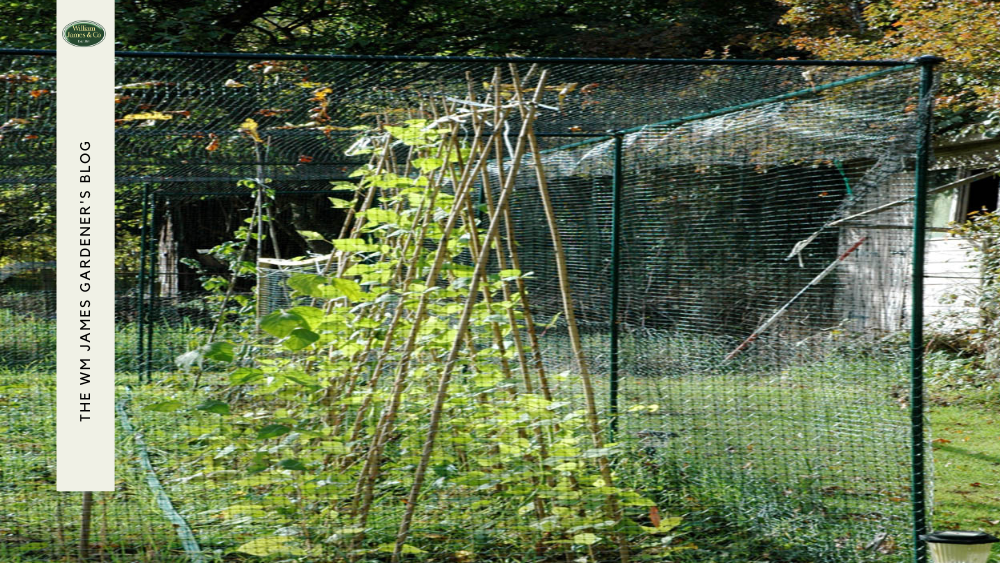We use cookies to make your experience better. To comply with the new e-Privacy directive, we need to ask for your consent to set the cookies. Learn more.
7 Common Signs of Rats in the Garden & How to Get Rid Of Them
- Admin
- WM James Gardening Blog
- 26 May 2023
-
4944views

Rats. A gardener's worst nightmare. They cause a lot of damage, spread diseases and can be difficult to get rid of. But you don't have to live with them!
If you've noticed some of the tell-tale signs of a rat infestation in your garden, you should take action as soon as possible to avoid further damage.
Keeping your garden tidy is rule 101 for keeping these rodents away. That means keeping your rubbish bins sealed, compost properly contained, and any spilled food cleaned up promptly.
Bin tidies or bin stores are good for housing your rubbish bins to keep them well contained and secure from rats.
If you're composting, invest in a good bin or composter with a lid, and that is elevated off the ground.
Read on for the common signs of rats in the garden and other natural ways to get rid of them.
Most Common Signs of Rats in Your Garden
If you think you might have a rat issue in your garden, there are some common signs to look out for.
1: Rat Droppings
The first and one of the most obvious tell-tale signs that garden rats are present is garden rat droppings.
Rat droppings are small, dark and tapered at one end, usually found near areas where they have been foraging or nesting, like under a raised flower bed or in the shed.
2: Gnawed Food Packets and Containers
Rats will often gnaw through food packets and containers to get at their contents, leaving behind jagged edges and gnaw marks. If you've noticed any damaged packets or containers in your garden, chances are you have a rat problem.
3: Damage to Plants and Vegetables
Rats love to chew on plants and vegetables, so if you've noticed any chewed leaves or stalks in your vegetable patch, it's likely that rats are the culprits.
Of course, other garden pests can cause damage to plants and vegetables, so look out for other signs too.
Protect your plants and veggies with our tried and trusted plant netting…
4: Small Burrows in the Ground
Rats often make burrows in the ground, usually near a wall or fence line. If you've noticed any unusual mounds of soil around your garden, it could be an indication that rats are present.
5: Unexplained Noises
Rats can make a variety of noises, such as squeaking, scuttling and scratching. If you've heard any strange noises coming from your garden late at night, it could be an indication that rats are present.
6: Unusual Smells
Rats can also leave behind a musky smell, so if you've noticed an unusual smell emanating from your garden, then it could be another sign of an infestation.
7: Footprints in Soft Ground
If you've noticed any tracks or footprints in soft ground, then this could be another indication of a rat infestation.
How to Get Rid of Rats in Your Garden Naturally
If you've noticed any (or maybe even all) of the signs above, then you should take action as soon as possible to get rid of the rats in your garden. While garden rats are certainly a nuisance, you should try every possible way to get rid of them naturally and safely.
Here are some tips on how to do exactly that:
Remove All Food Sources from Your Garden
The first step is to make sure there are no food sources for the rats in your garden. This means clearing up any spilled bird seed or pet food, and making sure all compost bins are securely covered. Our Beehive Composter has a really handy hinged lid and removable bottom panel, which makes it easy to clean and keep secure.
If you're growing fruit and veg in your garden, make sure they are harvested as soon as possible and don't leave them to rot on the ground. Any spoiled fruit or vegetables should be thrown in the bin rather than composted.
Take Down Your Bird Feeders for a While
Rats eat grains and seeds, so if you have bird feeders or squirrel feeders in your garden, it's best to take them down for a while until the rat problem is resolved.
Keep Your Garden Neat and Tidy
Garden rats are particularly attracted to dirty and untidy gardens, as they provide plenty of places to hide and nest. To reduce the risk of attracting rats, make sure your garden is neat and tidy at all times, with no piles of leaves or anything else that could provide cover for them.
Make sure any compost bins are regularly emptied and keep any woodpiles away from your house and shed.
Keeping your lawn regularly cut is also a good idea, to make it harder for rats to hide.
Introduce Natural Predators
Natural predators can be a great way to help keep rats away from your garden. If you have a cat, it can help to keep the rat population down.
Foxes, owls and hedgehogs are also great natural predators, so if you can encourage them to visit your grade, you might find that the rat problem sorts itself out.
Contact Pest Control Services
As a last resort, if you can't get rid of the rats in your garden naturally, you should contact a professional pest control service. They can assess the situation and take action to remove the rats from your garden.
How to Protect Your Garden Plants and Crops from Rats with Netting
As a precautionary measure, you might want to consider protecting your plants and crops from rats with netting. Whether you think you might have garden rats or not, it's always worth taking steps to protect your plants from them.
Garden netting can be set up around and over your plants to keep the rats away, and it also provides protection from other garden pests, such as birds, butterflies and foxes.
Here at WM James, we sell a fantastic range of garden netting that can be used to protect your plants and crops from rats. Our Plastic Garden Netting is particularly popular and has been designed to provide a strong barrier against rats, deer, rabbits and other mammals.
A fruit cage is also a great way to protect your fruits and vegetables from rats. Our Steel and Aluminium Fruit Cages can be set up around your plants to provide a secure barrier, keeping out all types of wildlife that might want to take a bite out of your crop!
You can also use our garden netting to block off any entry points in your garden, like gaps in walls and fences, to prevent any more rats from entering your garden.
Shop Our Strong Garden Netting
Summary: How to Get Rid Of Rats in Your Garden
Garden rats can be a real nuisance, and it's important to take action as soon as possible if you think you might have an infestation.
Keep your eyes peeled for the tell-tale signs that these rodents are present, and take steps to get rid of them naturally. And to take precautionary measures, grab yourself our garden netting to protect your plants and crops! It’s incredibly easy to set up and will keep your plants safe not just from rats but from other animals too.
You can shop the products we’ve recommended below, or head to our tough garden netting and garden tidying collections to see our full range!
* UK orders over £100 qualify for free delivery. Ts & Cs.
FAQs
What Attract Rats to Gardens?
Should I Be Worried if I See a Rat in My Garden?
While spotting one rat in your garden doesn't necessarily mean you have an infestation, it's a good idea to check for any other signs of rats that could indicate a larger problem. You should set up preventative measures and take action to get rid of them as soon as possible.
How Do I Know if I Have a Rat Problem in my Garden?
Look out for the common signs of rats in your garden, such as rat droppings, gnawed food packets, damage to plants and vegetables, burrows in the ground, unexplained noises and unusual smells. If you spot any of these signs, then it's likely you have a rat problem.
What Are the Best Ways to Get Rid of Rats in My Garden?
Killing rats should really be a last resort – try every possible way to get rid of them naturally and safely. Remove any food sources from your garden, take down bird feeders for a while and keep your garden tidy to reduce the risk of attracting rats. You should also set up garden netting to protect your plants and crops. But if all else fails, contact a professional pest control service.
Related Posts







